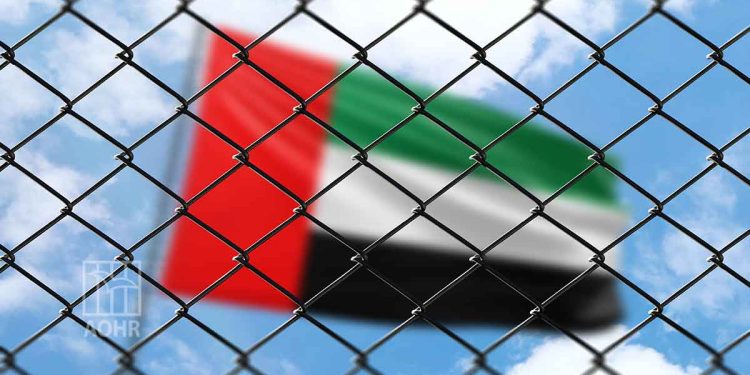50 Emirati political prisoners are continued to be held in the so-called ‘Counselling Centres’ behind their release date, in yet another violation of human rights and the principles of the rule of law.
The activist Abdullah Al-Helou is the oldest of the detainees whose sentences have ended but he is still imprisoned. His 3-year prison sentence had come to an end in April 2017, meaning that he has spent five years and eight months in indefinite detention.
The Emirati Public Prosecution claimed that Al-Hilu “poses a threat” to the state security, leading to his continued detention.
Muhammad al-Siddiq, the father of the late activist Alaa al-Siddiq, is also one of the indefinite detainees who was supposed to be released about 300 days ago after completing his 10-year prison sentence.
Sheikh Sultan bin Kayed Al Qasimi, the cousin of the ruler of Ras Al Khaimah, Sheikh Saud bin Saqr Al Qasimi, is considered one of the most prominent detainees whom the authorities refuse to release despite spending his sentences.
Instead of being released upon the completion of their sentence, many prisoners are transferred without a legal basis to so-called “counselling centres” (or “Munasaha centres” in Arabic) inside prison facilities.
Officially used to “guide and reform” those convicted of terrorist offences, these counselling centres are increasingly employed as a political tool to silence dissent, under the pretext that political prisoners pose a “treat” to the state and society. Those who have been transferred to such centres have not been charged with any offence, therefore they are not able to appeal a judicial verdict.
This practice allows for the government to hold prisoners indefinitely without due process in order to repress human rights activists’ freedom of expression in the UAE.




























